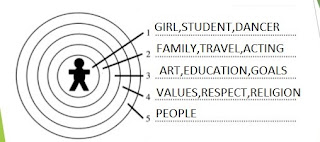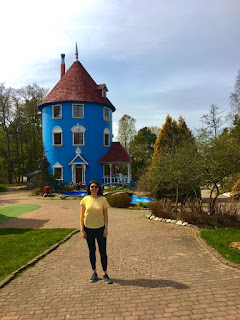Hofstede’s Cultural Model (Part 1)
When we say Hofstede's model, my mind immediately
goes to the Cultural Onion. As a person who has travelled all their childhood, although
it has some limitations and it may vary from person to person, this model is a
very relatable model to look at and understand. A cultural onion is just like
an onion with many layer. The inner layer shows what you value the most, what
is the most important and the last layer shows what you value the least. So,
this model doesn’t have any right or wrong since if differs. Here comes in the
culture part because as I have even seen in my exchange process, we all come
from different cultures. So you can easily pick a friend you met and sort of
make out their onions in your head by the way they act, talk and do stuff. It
only takes a bit of time to understand their greatest values. I would also at
this matter talk about a Ted Talk that I had watched which made me think about
this model along with our cultures. In his ‘’Where Is Home?’’ talk, Pico Iyer
talks about what the word ‘’home’’ really means to people. This also made me
think about myself and where I call ‘’home’’. When it comes to culture, I feel
like it is a very personal topic. And well, it is absolutely something that can
be understood differently. In this case, when people ask ''Where are you
from?'' to me, I say ''Turkey'' because that's where my grandparents are, that
is where we have a village and where I am living right now and have lived for
the past couple of years but when I say ''Turkey'', it really is a way of just
saying it. I just say it because as a society, I believe that we are pushed to
somewhat say where our ancestors come from. It is not true, not in my case. I
was born in Istanbul but that does not make it home because I grew up
travelling the world with my parents. So as I travelled more, I picked up many
different cultures I wanted to pick up and applied it to myself. I spent most
of my childhood years going from one place to another, meeting new people and
experiencing new stuff, almost as if on a world tour. So that is why, Turkey
isn't a home really. But when I don't say Turkey and say somewhere else, people
are like ''but where are you really from?''. I ask them to guess. I get a lot
of Middle Eastern places thrown at me which is okay but is this not some kind
of stereotypical act or even racism? It’s like ''If you are not blonde, you
cannot be Russian.'' or ''If you are blonde, you cannot be from a Middle
Eastern country.'' which is a weird thing. So when I tell people that home for
me is England because I have spent my childhood there, and have all my memories
there than they are like ''Oh so you don't like Turkey?'' or ''You don't accept
your own identity?''. I am Turkish but being Turkish does not mean that you
have to grow up there. It's just a thing. When it comes to being Turkish or
not, than when we look at my childhood, I would say ''I am from all around the
world'' because for me, being and travelling feels like home. When I don't
travel or go somewhere and have to stand at a place for a couple of years, I
become bored. So, I have found that ''home'' for me is traveling, meeting new
people and experiencing new cultures. If it was a physical place, than I would
tell you about the beautiful city of Portsmouth where I would ride my bike around
the pier, go on the rides with my friends, take a walk along the beach and rush
back home after school to be able to play in the garden.
But this matter somehow clashes with what
people accept as culture and what they don’t. But I can truly say: “I’m an
individual, not a representative of any culture.” Which would be acceptable in
many cultures. But as I have stated out before, there are so many cultures and opinions
around the world, there is no right or wrong. So I think that everyone should
respect and get to know each other’s cultures rather than trying to find a ‘’correct’’
opinion that is suitable for them.
I have also myself made a Cultural Onion to show my values.



Comments
Post a Comment